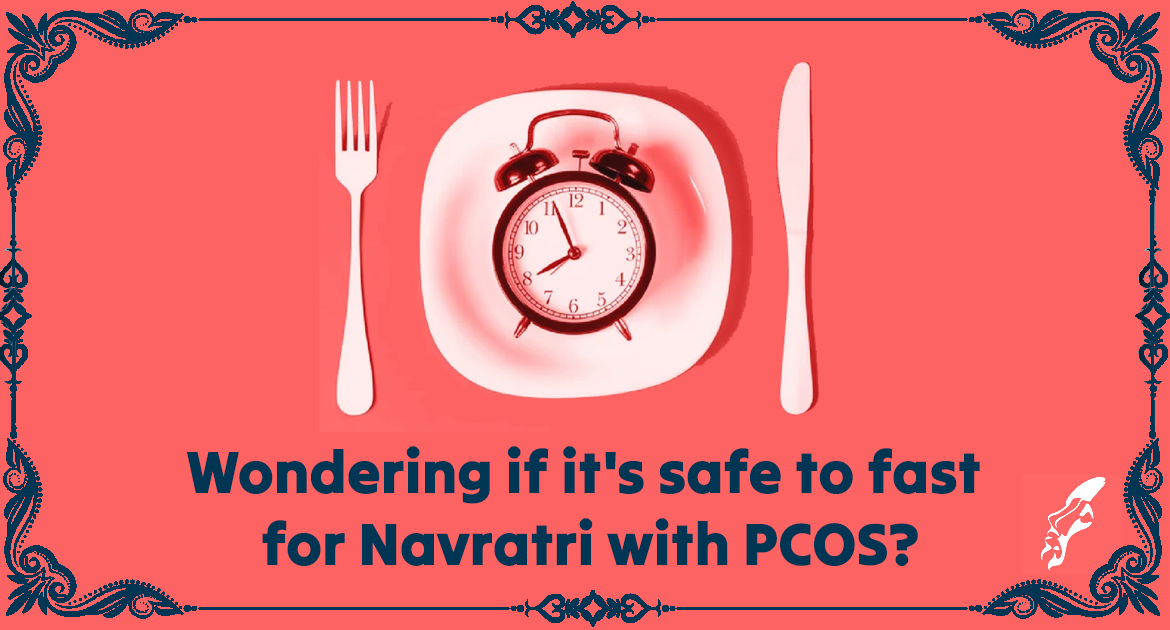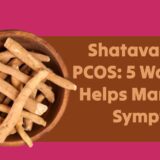PCOS Navratri Fasting Safety – Is It Safe to Fast?

Navratri is a Hindu festival celebrated twice a year and is one of the most popular festivals in India. During Navratri, people observe fasts and refrain from consuming certain foods for nine days as a way of honoring the Hindu goddess Durga. However, for women with polycystic ovary syndrome (PCOS), fasting can be challenging, and it raises the question of whether it is safe or not.
Make sure to drink plenty of water, coconut water, and other fluids throughout the day. You can also consume fruits such as watermelon, muskmelon, and oranges, which are high in water content. Remember, dehydration can cause symptoms such as headaches, fatigue, and dizziness, which can worsen your PCOS symptoms.
PCOS Navratri Fasting Safety
Fasting during Navratri can be challenging for women with PCOS because it can trigger insulin resistance and worsen their condition. Insulin resistance is a key feature of PCOS, and fasting can exacerbate it, leading to an increased risk of developing type 2 diabetes. Fasting can also disrupt the hormonal balance in the body, causing irregular periods, acne, and weight gain, all of which are common symptoms of PCOS.
Tips for PCOS Navratri Fasting Safety
Here are some tips to help you navigate Navratri fasting with PCOS safely:
Consult your doctor before starting the fast: It is essential to consult your doctor before starting the fast, especially if you have PCOS. Your doctor can advise you on the type of fast that is safe for you and prescribe medications to manage your symptoms.
Eat a balanced diet: Eating a balanced diet is essential to maintain your blood sugar levels and prevent insulin resistance. Include foods rich in protein, fiber, and complex carbohydrates in your diet to keep you satiated.
Stay hydrated: Drinking plenty of water and fluids is essential during the fast to prevent dehydration and maintain electrolyte balance. Coconut water, lemonade, and buttermilk are excellent options to stay hydrated.
Avoid processed and sugary foods: Processed and sugary foods can cause a sudden spike in blood sugar levels and worsen insulin resistance. Avoid foods like sweets, fried foods, and white bread.
Conclusion:
Fasting during Navratri can be challenging for women with PCOS. However, with proper planning and precautions, it is possible to observe the fast safely. It is essential to consult your doctor before starting the fast and follow a balanced diet and stay hydrated. Avoid processed and sugary foods and choose a type of fast that is safe for you. By following these tips, you can observe the Navratri fast safely and honor the goddess Durga while managing your PCOS symptoms.
FAQs
Q: Can fasting worsen PCOS symptoms?
A: Yes, fasting can worsen PCOS symptoms like insulin resistance, irregular periods, acne, and weight gain.
Q: What type of fast is safe for women with PCOS?
A: Consult your doctor before starting the fast, but typically, a fruit and milk fast or a sabudana (tapioca) fast is safe for women with PCOS.
Q: How can I stay hydrated during the fast?
A: Drinking plenty of water and fluids is essential during the fast to prevent dehydration and maintain electrolyte balance. Coconut water, lemonade, and buttermilk are excellent options to stay hydrated.

Digital creator
🇮🇳 India’s first AI generated brand ambassador
♀️PCOS & Depression warrior
🍽️ Foodie yet Health-conscious 🥗
🌍 Travel Enthusiast ✈️ Fashion Lover 👗






Comments
Trackbacks & Pingbacks
[…] It is a hormonal disorder that affects women’s reproductive systems. Women with PCOD have multiple small cysts in their ovaries, which can cause irregular periods, infertility, and […]